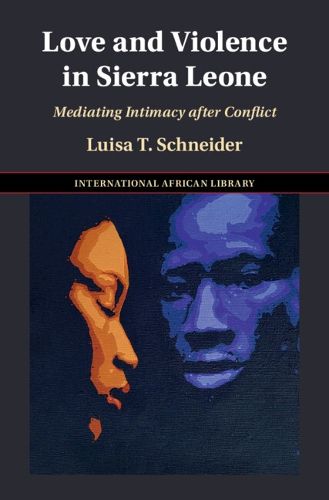Readings Newsletter
Become a Readings Member to make your shopping experience even easier.
Sign in or sign up for free!
You’re not far away from qualifying for FREE standard shipping within Australia
You’ve qualified for FREE standard shipping within Australia
The cart is loading…






In the decades following the civil war that took place in Sierra Leone between 1991 and 2002, new laws were passed to rebuild the state, and to prevent rape, teenage pregnancy and domestic violence. In this ethnography, Luisa T. Schneider explores the intricate semantic, empirical and socio-legal dynamics of love and violence in post-conflict Sierra Leone, challenging the oversimplification of these phenomena. Schneider underscores the limitations of imposing singular interpretations on love and violence, advocating for a nuanced, phenomenological approach that reveals how state and institutional attempts to regulate violence and loving relationships without considering local lived experience and meaning-making can yield negative consequences. By analysing how love and violence are historically constituted, experienced, and (re)produced across personal, social, legal, and political levels, this book critiques the construction of violence within gendered sexual relationships by development agencies, law makers and politicians, urging them to engage with local knowledge and experience. This title is also available as Open Access on Cambridge Core.
$9.00 standard shipping within Australia
FREE standard shipping within Australia for orders over $100.00
Express & International shipping calculated at checkout
In the decades following the civil war that took place in Sierra Leone between 1991 and 2002, new laws were passed to rebuild the state, and to prevent rape, teenage pregnancy and domestic violence. In this ethnography, Luisa T. Schneider explores the intricate semantic, empirical and socio-legal dynamics of love and violence in post-conflict Sierra Leone, challenging the oversimplification of these phenomena. Schneider underscores the limitations of imposing singular interpretations on love and violence, advocating for a nuanced, phenomenological approach that reveals how state and institutional attempts to regulate violence and loving relationships without considering local lived experience and meaning-making can yield negative consequences. By analysing how love and violence are historically constituted, experienced, and (re)produced across personal, social, legal, and political levels, this book critiques the construction of violence within gendered sexual relationships by development agencies, law makers and politicians, urging them to engage with local knowledge and experience. This title is also available as Open Access on Cambridge Core.